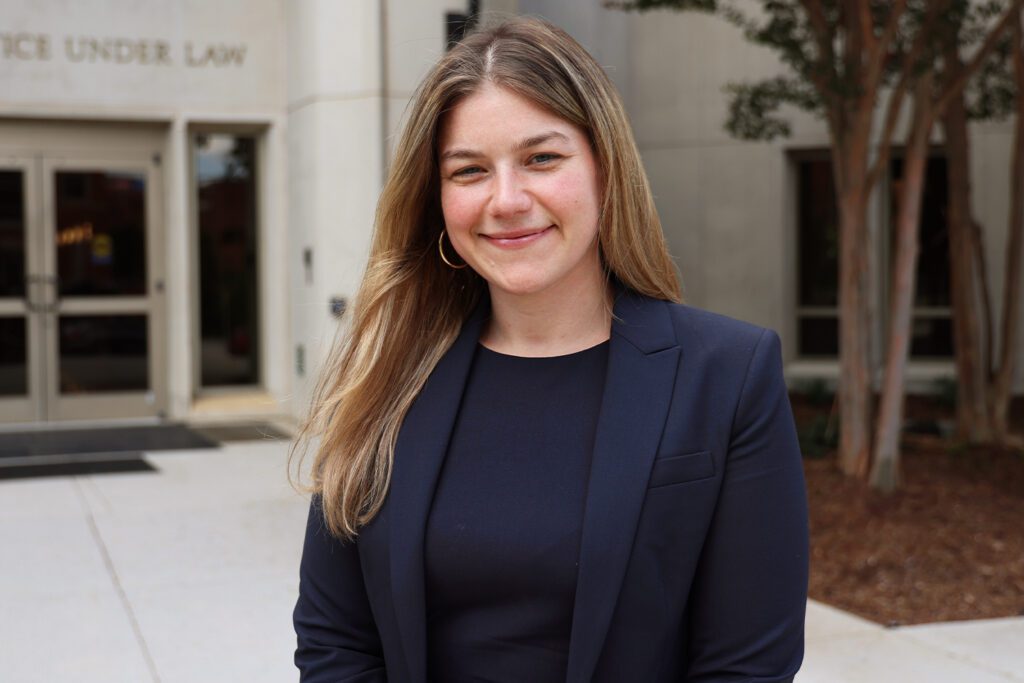Over the past 75 years, the Legal Clinic at the University of Tennessee College of Law has earned wide respect for the quality of its clinical offerings. In its most recent rankings, U.S. News and World Report ranked the Legal Clinic eleventh among public law schools.
One thing the Legal Clinic has lacked, though, that higher-ranking clinics enjoy is a clinical teaching fellowship. Such fellowship programs not only prepare practicing attorneys to teach law; they also increase clinic’s capacity to enroll student attorneys, take on more cases, and provide legal services to the community.
Last fall, during its 75th anniversary celebration, the clinic took steps to address this by launching a fundraising campaign for two clinical fellowship endowments. The campaign is being led by an alumni committee with co-chairs Beth Ford (UT Law ’78) and Ann Pruitt (UT Law ’93) and members Jerry Becker, Cody Fox (UT Law ‘17), and Brittani Holland (UT Law ‘18).
“We would ideally have two endowments—one advocacy and one transactional. We need to raise $2.5 million to support each endowed fellowship,” says Joy Radice, Director of Clinical Programs and Associate Professor of Law. “Because we have clinic alums who loved their clinic experience, we have had tremendous financial support for a clinical teaching fellowship endowment.”
Thanks to the generous donation of $250,000 from Rick Rose (’74), the Legal Clinic brought on its first Clinic Fellow this fall after a nationwide search.
The First Clinic Fellow
“We received applications from all over the country and narrowed that pool down to four excellent candidates, whose background experiences ranged from big firms to public defender offices,” Radice says.
The first fellowship was awarded to Tyler Dougherty in July 2023.
“Prior to joining UT, I represented young people pre- and post-disposition in New Jersey’s juvenile and criminal legal systems as a staff attorney at the Rutgers Youth Justice Clinic in Newark,” Dougherty says. “Professor Kristina Kersey, who had just accepted her new position at UT Law, had been a mentor of mine when I worked in the Newark Public Defender’s Office. She encouraged me to apply. Because of the clinic’s reputation, I knew I would receive awesome clinical training.”
Dougherty was attracted to the two-year fellowship because it would give her, as a practitioner, an opportunity to focus on scholarship while also acquiring valuable experience teaching law. In August, she began teaching in the Advocacy Clinic, supervising students in juvenile, criminal, and rights restoration cases.
Community Commitment
What impresses Dougherty most about the clinic is its commitment to meet the community’s needs, both in accessibility and the breadth of services offered.
“From my experience, the Legal Clinic is unique in how closely the different clinics work with one another,” she says. “I’ve recently joined Professor Eric Amarante in the Transactional Law Clinic in going to meet with a newly formed community group in Knoxville. By working together, we’ve been able to offer a wide variety of services to the group from expungement to incorporation. I love the model of meeting the community where they are and providing more wrap-around services so people don’t have to go to many different organizations to access support.”
One example stands out to Dougherty of how the clinic helps change lives for the better through community support. The clinic has been partnering with Free Hearts, a Nashville-based organization founded to help restore voting rights to incarcerated and formerly incarcerated individuals. Dougherty had the opportunity to attend a Free Hearts community gathering in Nashville and hear powerful stories of the work’s impact.
“Prior to coming here, I had no idea that 1 in 12 people in Tennessee are not able to vote because of a felony conviction,” she says. “The first week I joined the clinic, I saw the clinic represent a man from Knoxville who had his full civil rights restored after losing them over twenty years ago for a drug offense. I was moved to see how significant the restoration was to him and his family.”
Through the Legal Clinic, law students gain real-world legal experience by working directly in the community representing clients in criminal, juvenile, and civil cases, petitioning for orders of protection, creating businesses and nonprofit organizations, expunging charges, and mediating disputes. Dougherty says it is incredible seeing students engaged in such meaningful work. “I love the students!” she says. “I’ve loved watching them grow over the semester and show such strong commitment to their clients.”
Program Benefits
As she watches the students grow, Dougherty is also expanding her own practical experience into areas beyond juvenile rights, and into the teaching realm as well.
With Dougherty’s fellowship, the clinic gained a practitioner who can help increase the clinic’s case load and work with more student attorneys, allowing the program to increase enrollment and training. This meets a real need given the fact that there is often a waitlist for the Advocacy Clinic.
Radice, who also teaches with Dougherty in the Advocacy Clinic, says she appreciates how Dougherty has benefitted the program since her arrival.
“Tyler has brought amazing expertise and energy to the clinic,” Radice says. “She is helping our students see their advocacy in different ways and introducing different types of cases to Advocacy Clinic’s docket.” Given the generous financial support of alumni and friends, the Legal Clinic’s campaign is making meaningful progress towards achieving the $5 million endowment goal necessary to sustain these critically important Fellowships.
